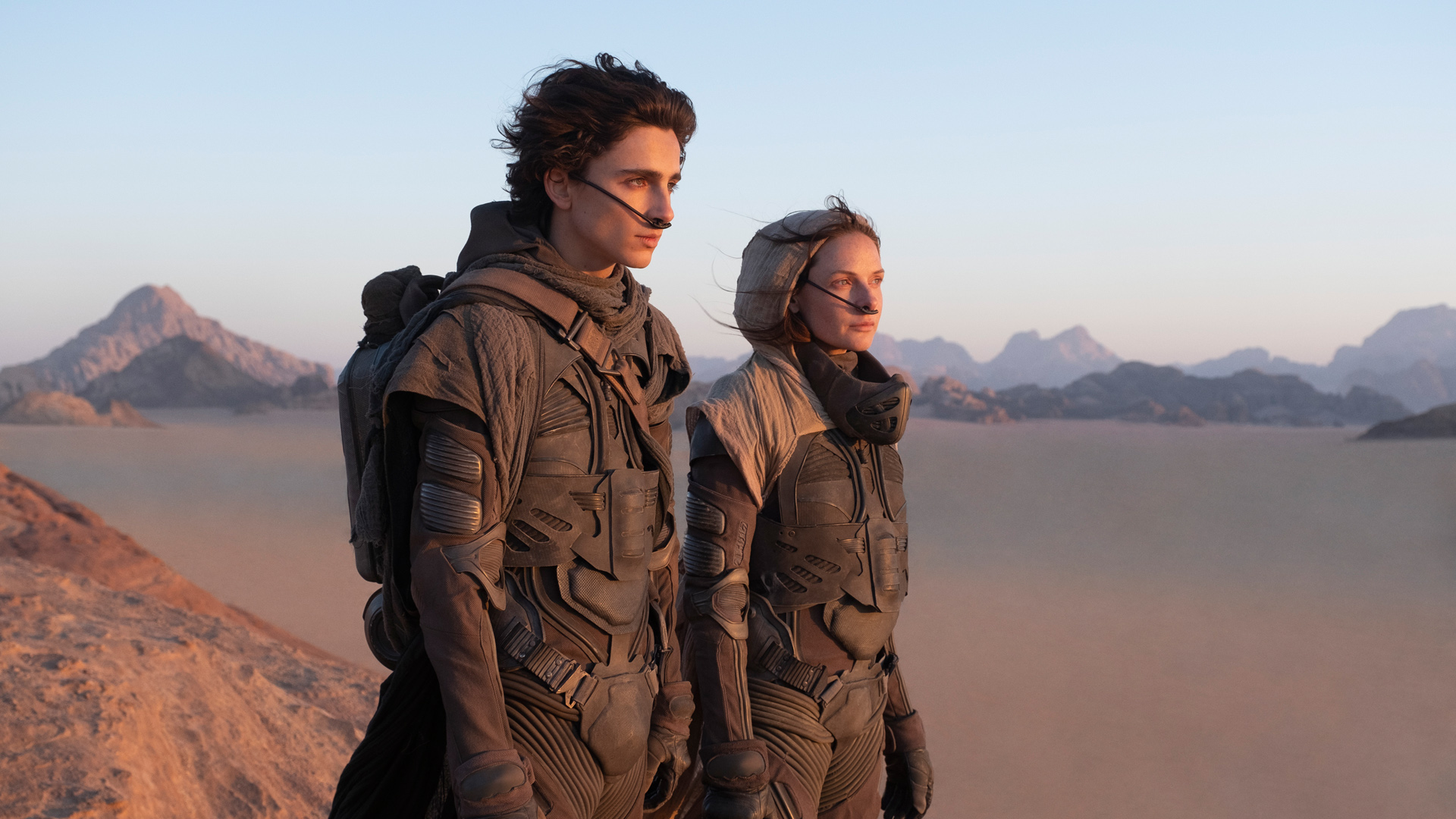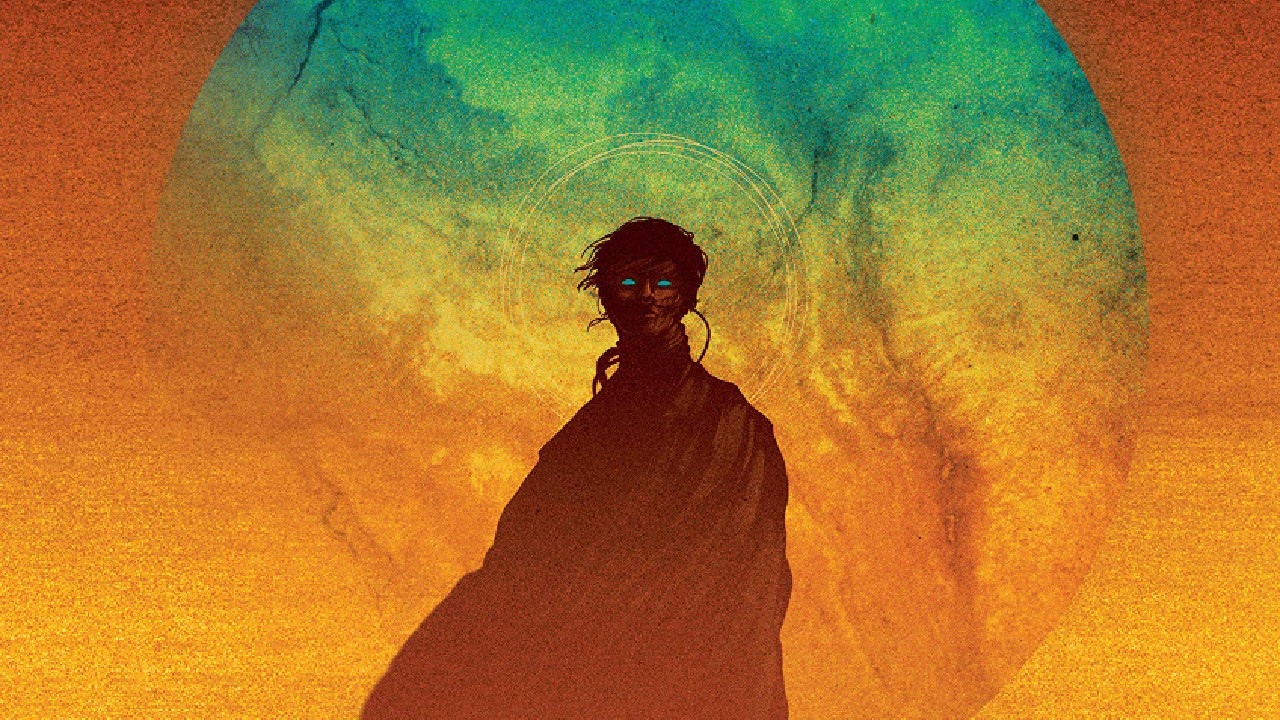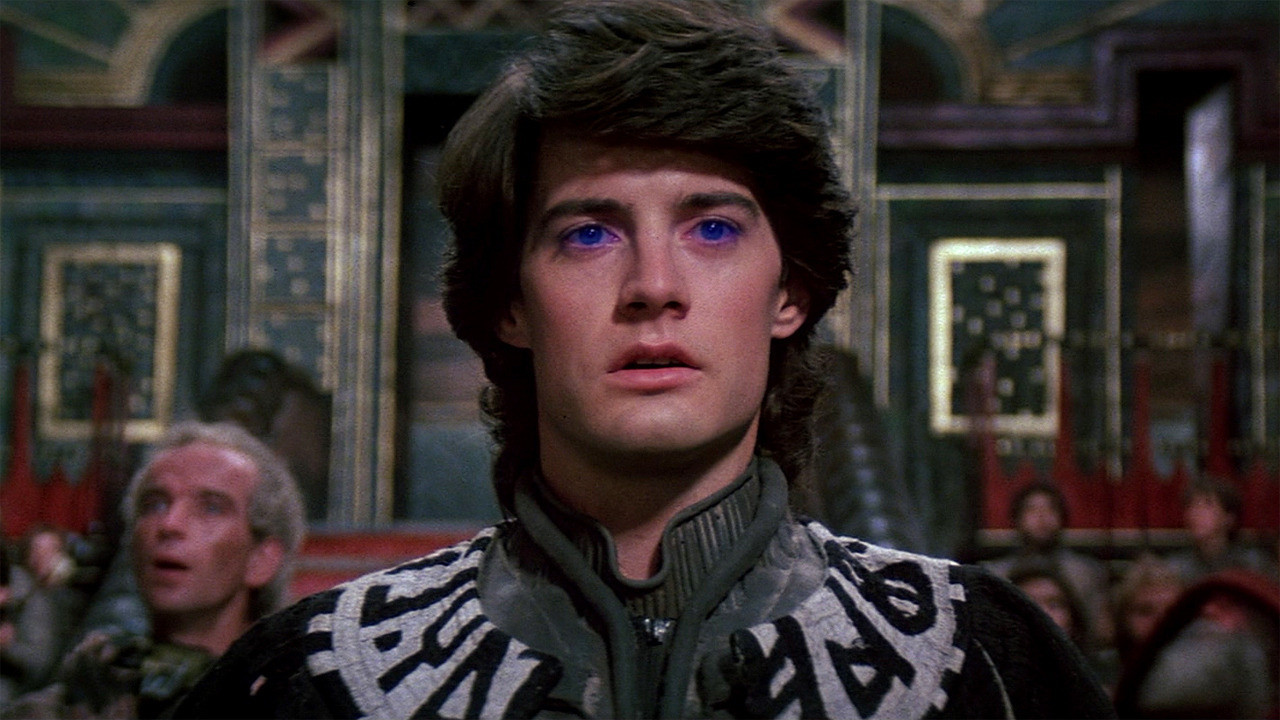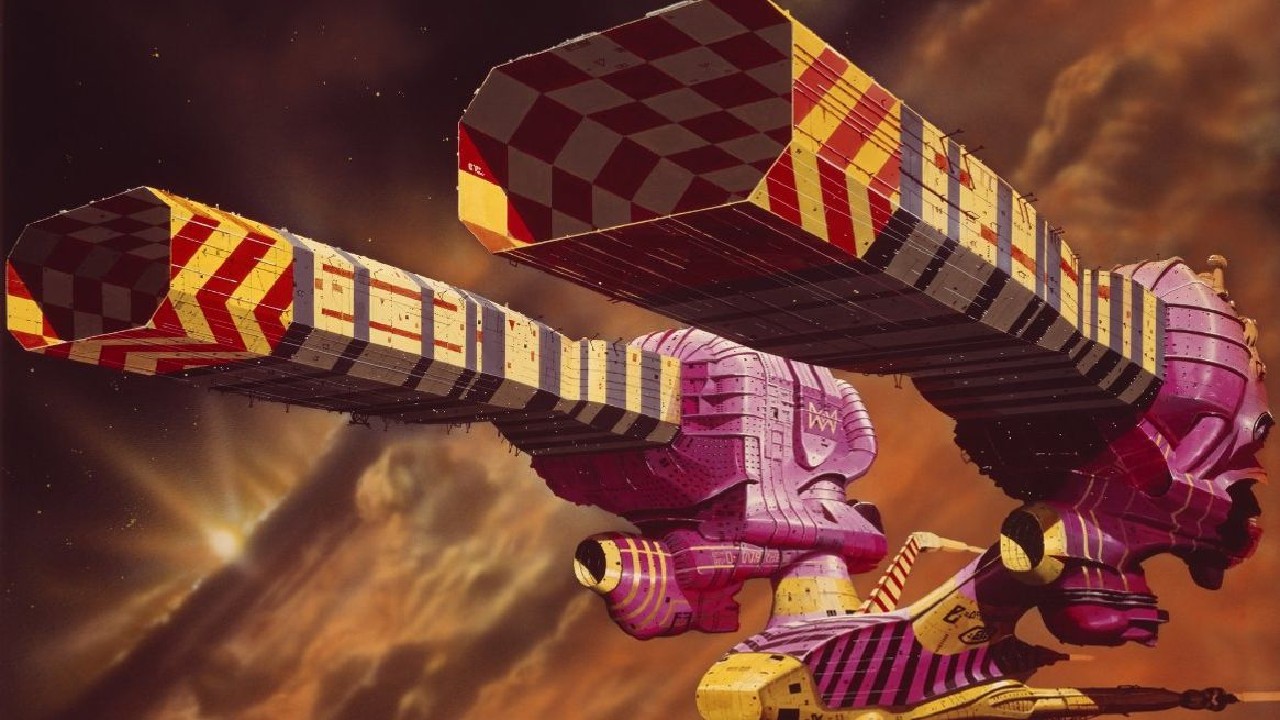A beginner’s guide to the Dune books and movies
Get up to speed before catching Denis Villeneuve's sequel with this Dune beginner's guide

Knowing where how to read the Dune books in order and getting a good beginner's guide to the Dune books under your belt is a great idea with Dune 2 on the way (although later than planned).
If you're relatively new to the sprawling Dune universe, don't fret as this guide can not only can help navigate your way through the books but also the whole world of Dune.
There's been a resurgence of interest in the 1965 sprawling sci-fi epic from Frank Herbert, and the massive world that spun from it. However, knowing where to start with the books and movies can lead to quite the headache.
The Dune novels are notoriously convoluted with sprawling plots, oddly named characters, and some heady themes. No wonder, then, that previous film adaptations have struggled. Twin Peaks creator David Lynch's 1984 movie was almost universally maligned, cult filmmaker Alejandro Jodorowsky failed to get his adaptation off the ground (leading to a fascinating documentary), and the SyFy Channel version is good, but way too long.
Yet, Villeneuve has unlocked the secret formula and finally given Dune the big-screen treatment it deserves. The Blade Runner 2049 and Arrival director had already proven his ability to direct impressive sci-fi stories, after all.
If you can't wait to see Dune 2 and want to brush up on the story, then you've come to the right place. Here's our beginner's guide to Dune that includes a breakdown of the reading list and a closer look at all the Dune adaptations before Villeneuve's.
Dune books reading order
Dune books reading order

Should you want a solid foundation of Dune knowledge before the upcoming movie, then finishing the first novel (helpfully titled Dune) should suffice. The novel itself is split into three separate parts – "Dune," "Mua'dib," and "The Prophet" – while Villenueve's movie will be split into two.
Sign up for the Total Film Newsletter
Bringing all the latest movie news, features, and reviews to your inbox
- Dune
- Dune Messiah
- Children of Dune
- God Emperor of Dune
- Heretics of Dune
- Chapterhouse: Dune
- Hunters of Dune
- Sandworms of Dune
However, if you’re interested in diving deeper into Herbert’s world, there’s a bounty of material to explore. We should note that Herbert passed away following the publication of Chapterhouse: Dune, which ended on a huge cliffhanger. Two decades later, the author’s son, Brian Herbert, along with Kevin J. Anderson, penned a sequel that’s based on the notes left behind by Frank Herbert. There's a whole lot of material to ingest if you choose to do so here’s the reading order to tackle the books in.
Understanding the world of Dune
Understanding the world of Dune

Dune is set in a fictional, far-distant future (10,191 to be exact) where noble houses lead a feudal society stretching across many planets, which are considered fiefs (an estate of land held on condition of offering services to someone higher).
The protagonist, Paul Atreides, is the son of Duke Leto Atreides and Lady Jessica, a Bene Gesserit acolyte. The Bene Gesserit are a matriarchal religious sect that wield seemingly superhuman powers obtained after years of grueling physical and mental training. They have their own political motivations and look to acquire more power – hence why Lady Jessica was installed into House Atreides.
Much of the population mistrusts the Bene Gesserit, and calls them "witches" because of their strange abilities. Ultimately, the Bene Gesserit acolytes take part in a long-running genetic breeding program in order to birth a male, Christ-like figure known as the Kwisatz Haderach (yes, the names are wild, take a moment to go over them a few times).
Dune begins with the entire Atreides family relocating from the ocean planet Caladan in order to manage the harvest of a very important export called melange, known colloquially as spice, on the desert planet Arrakis. Duke Leto is ordered to do this by the Padishah Emperor Shaddam IV, who is secretly in cahoots with members of the House Harkonnen, longtime rivals of House Atreides. The Atreides' time on Arrakis quickly becomes dangerous, and Jessica and Paul end up sheltering with the Fremen, the planet's native people who live out amongst the dangerous sand dunes.
In short, Dune is the tale of a family who are betrayed by their masters and forced to work with a planet’s native people to survive. The adventure centers primarily on Paul, and goes on to include a whole host of weird and wonderful characters.
Dune adaptations
Dune adaptations

The current Dune adaptations have left behind a special kind of legacy. Fans have a bizarre mix of reverence and disdain for the movies that have been released so far – a testament to just how difficult it is to translate this story from page to screen. Here's the three main attempts at making a Dune movie, in chronological order.
Jodorowsky's Dune
Now, this would have been a weird movie – if it had actually been made. Chilean-French filmmaker Alejandro Jodorowsky wanted to make a 14 hour movie starring Orson Welles (whom he bribed to join the cast by promising the Citizen Kane director that the chef from his favorite restaurant would provide craft services), Mick Jagger, Salvador Dali, and his own 12-year-old son. Jodorowsky hoped that the experience of watching the movie would prompt a mental response similar to taking LSD. Renowned painter H.R. Giger, comic artist Moebius, and VFX supervisor Dan O'Bannon were involved in pre-production. Pink Floyd and French band Magma were going to provide soundtracks for House Atreides and House Harkonnen, respectively. It was a veritable who's who of the '70s.
Unfortunately, Jodorowsky's vision was too grand to function, as the film spent over two years flailing in development, which cost the director $2 million. The project ultimately stalled for financial reasons, and was never picked up again. However, you can watch the fantastic documentary about the near making-of. Plus, you can enjoy the fruits of Jodorowsky's labor in other ways: Giger, Moebius, and O'Bannon were inspired by their work on Dune and went on to create art for a minor movie called Alien.
Dune (1984)
David Lynch should have been the perfect person to direct Dune. On paper, the movie still checks out: Kyle MacLachlan (then unknown) plays Paul Atreides and friggin' Sting appears as the villain Feyd Rautha. The soundtrack comes from Toto. Herbert's core story is a wonderful mix of themes that Lynch excels at depicting: surrealism, the battle of light and dark, and the struggle of the subconscious. You could still argue that Lynch is the perfect director for a Dune movie, and would have created a masterpiece had Universal's interference not hacked his movie to pieces.
After Dino De Laurentiis bought the cinematic rights to Dune in 1976, the Hollywood producer initially hired Ridley Scott to direct Dune. When Scott dropped out, the Laurentiis' daughter convinced him to hire David Lynch (she was reportedly a fan of Elephant Man). Unfortunately, Universal had the final cut, chopping the movie up so badly that they had to record voiceovers to piece together plot holes (Lynch intended Dune to run for three hours, but the final cut landed at 136 minutes). Lynch still refuses to discuss Dune, citing "zero interest" in any adaptation after his experience left a bad taste in his mouth.
Frank Herbert's Dune (2000)
The SyFy Channel (then known as SciFi) were well aware that a Dune was basically a science fiction Bible, so they tacked Frank Herbert's name onto the miniseries' title. Directed and adapted by John Harrison (a George A. Romero collaborator), the series starred Alec Newman as Paul Atreides and William Hurt as Duke Leto. It won two awards at the 2001 Emmys: Outstanding Cinematography and Outstanding Special Visual Effects.
While critics lauded the miniseries, and to date it's one of the highest-rated programs ever broadcast on the SyFy Channel, it's considered to be a bit of a laborious watch. That's because it's an extremely loyal adaptation that sticks very closely to the source text – parts of which translate well in prose but not on screen. Either way, it spawned a sequel, 2003's Children of Dune starring James McAvoy.
- Best sci-fi movies, ranked!
So there you have it, a beginner's guide to the world of Dune, from reading order to movie adaptations.
Alyssa Mercante is an editor and features writer at GamesRadar based out of Brooklyn, NY. Prior to entering the industry, she got her Masters's degree in Modern and Contemporary Literature at Newcastle University with a dissertation focusing on contemporary indie games. She spends most of her time playing competitive shooters and in-depth RPGs and was recently on a PAX Panel about the best bars in video games. In her spare time Alyssa rescues cats, practices her Italian, and plays soccer.



